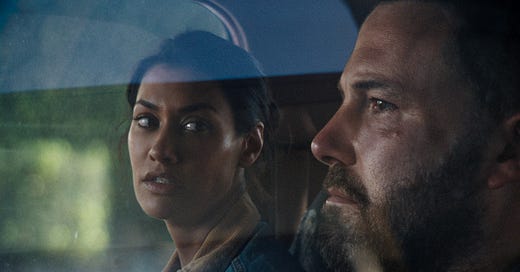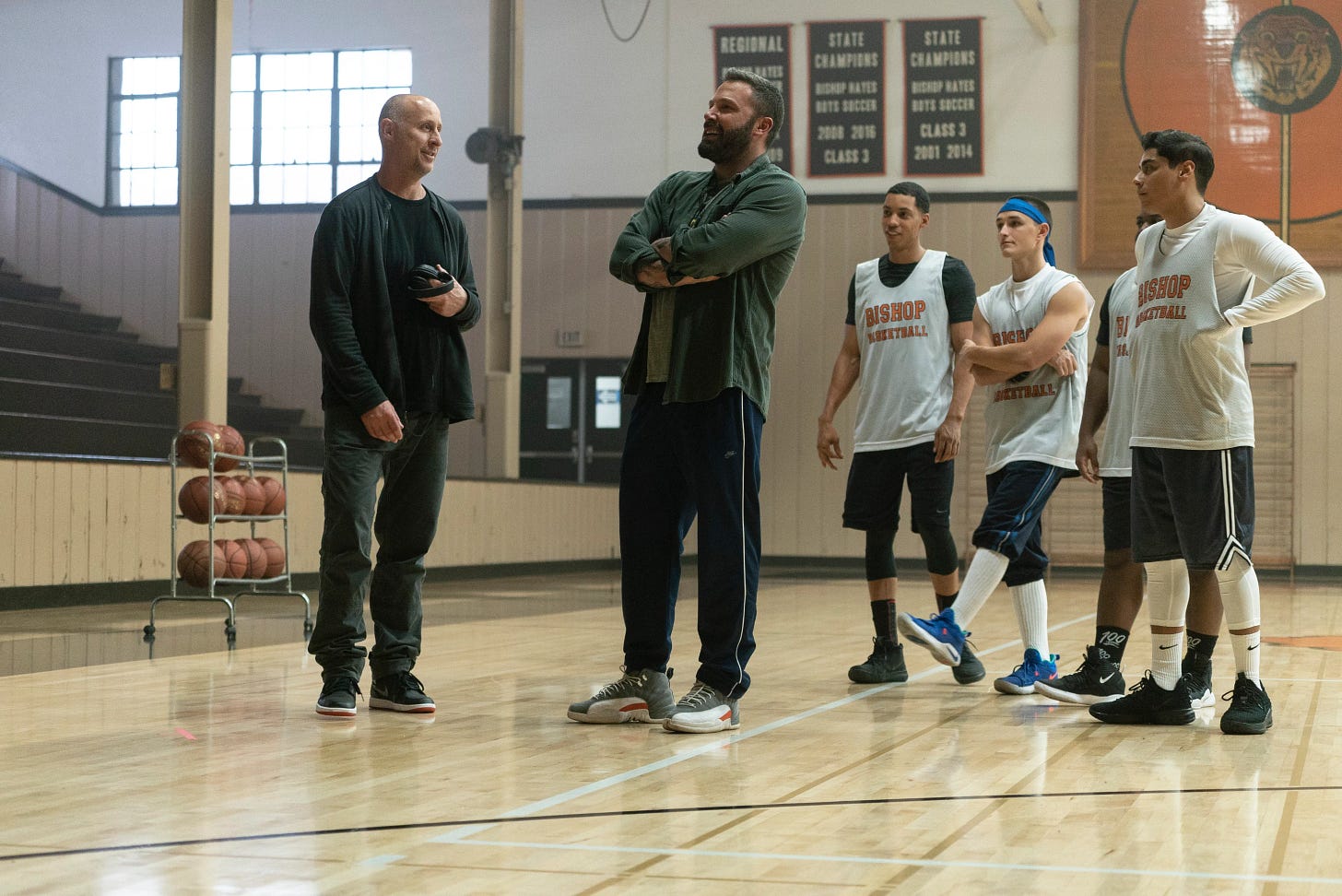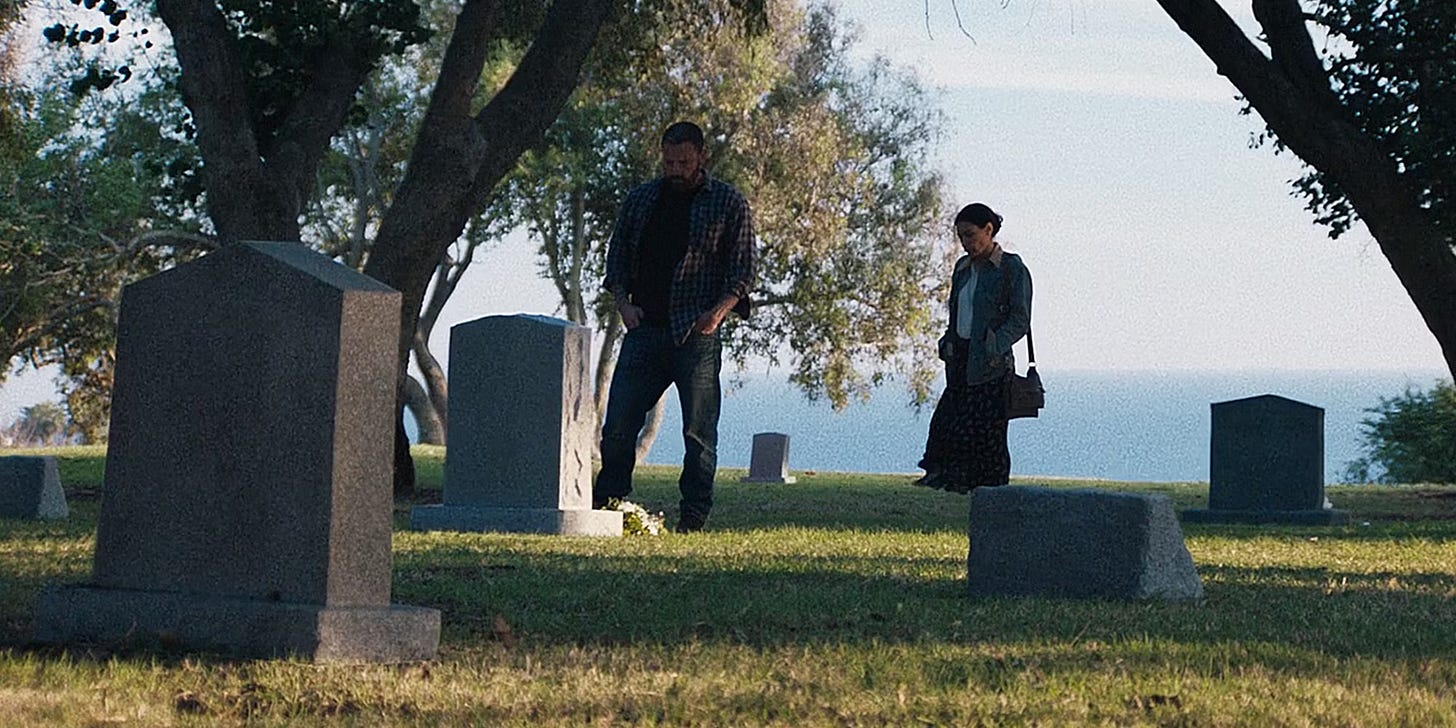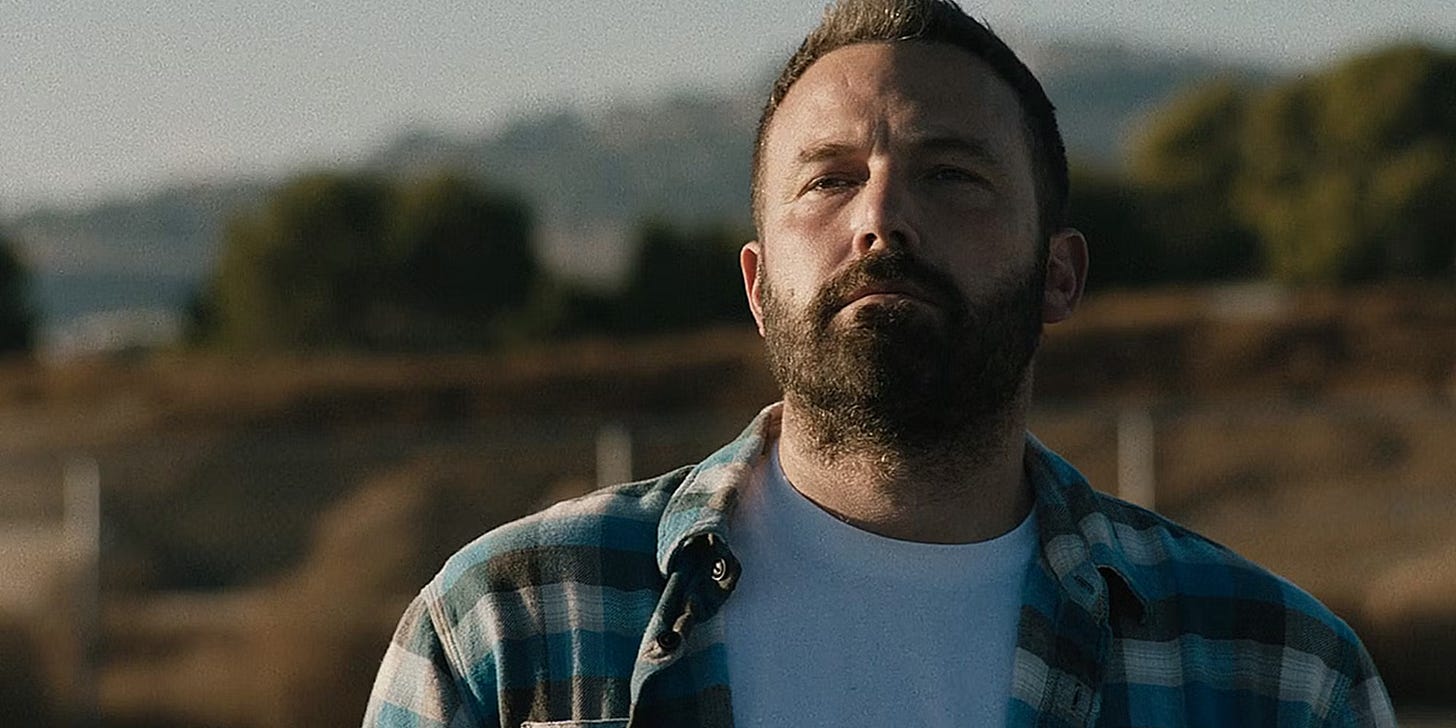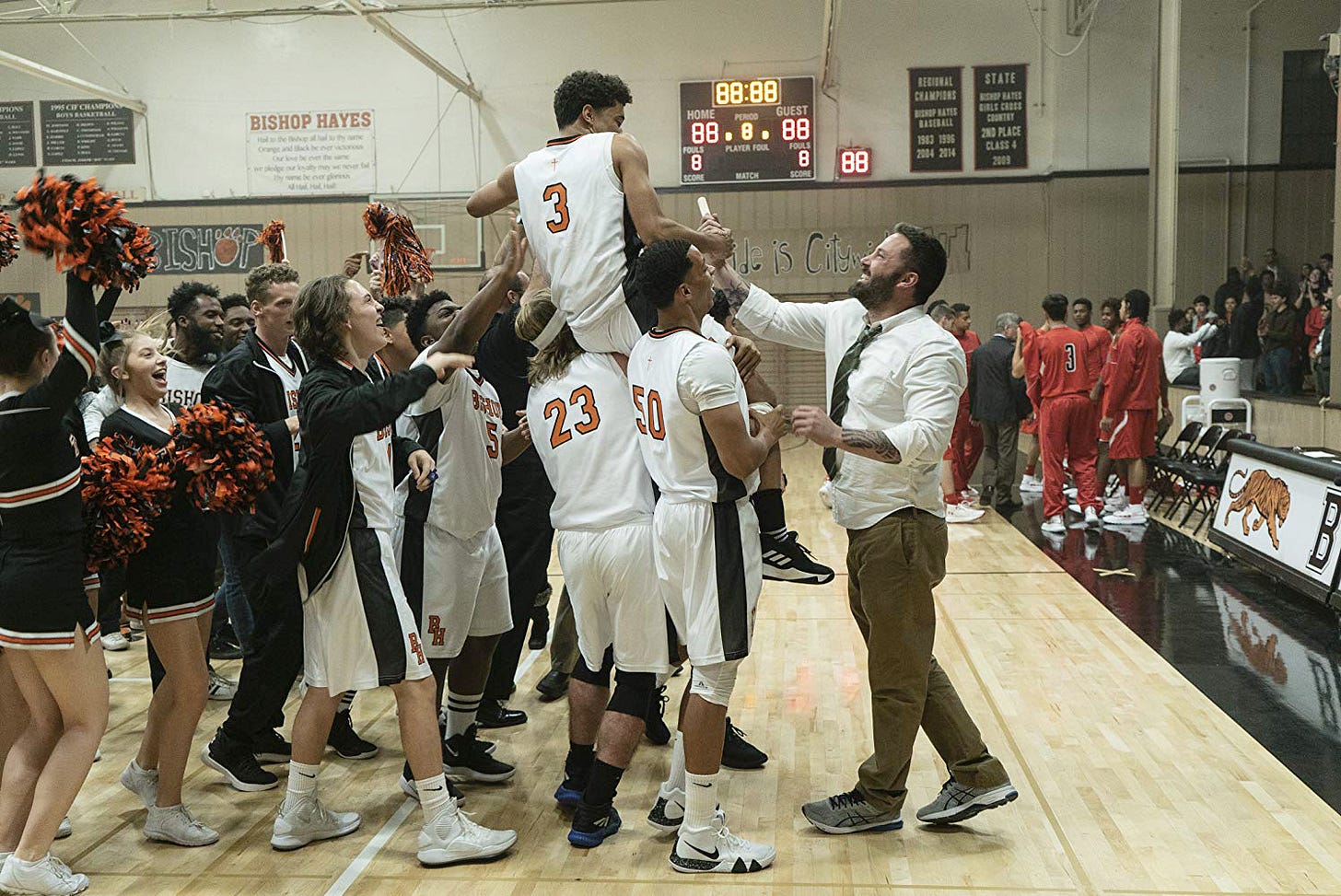The brilliant yet forgotten Ben Affleck basketball film that spoke honestly about addiction and grief
The moving Gavin O'Connor gem came out right before the pandemic outbreak.
If The Way Back was released any other year (or previous weekend) except for 2020, it wouldn’t be such a hidden gem today. The very week that the COVID pandemic broke out across the United States, a small-time basketball comeback story was released in theaters. If not for the world-crippling virus, the Ben Affleck awards train may have left the station or at least required a build.
Everything else about its marketing, plot, cast, and general appeal seemed like a certain swish. March Madness was heating up. Affleck made the film while in rehab for alcohol abuse, fueling the film’s plot about a washed out high school sports phenom who pile-drives a 24-pack of beer to get through a single day. Jennifer Garner urged director Gavin O’Connor to make the film. You couldn’t pack more feel-good grit into a recipe.
And then March 6 came and went, and people completely forgot about the movie. One of my buddies said it was fine but just like any other sports comeback tale. I begged hard to differ, but it seemed like we were talking about a movie that came out years ago. The Way Back had only been in theaters for two weeks during that conversation. The mass chunk of the moviegoing public avoided it like the plague, either due to a lack of superhero tights and catchy “Barbenheimer” level marketing.
Maybe if Affleck had played an alcoholic Batman withering away in Florida after losing a nine-year-old kid to cancer, the comic book nerds would have come out for a screening. Nope! Too sad! Sad Affleck doesn’t sell on the big screen, only on smaller TMZ-like cameras.
But the booze and sadness were only the first few pages of a juicy movie. The Way Back was about grief and its 110% wholesome attack on someone and their entire family. It’s about grief’s relentless ability to swarm and cloud every single aspect of someone’s life, triggering the alcohol and bad decisions to follow in their footsteps. If cancer is Stan Kroenke, grief is its bratty little sidekick, Kevin Demoff.
Affleck played the shit out of the role, too. He didn’t rely on his real life troubles to power the performance, but he drew from them when needed. Affleck’s beagle eye stare carries a presence. He built the runway for Jack Cunningham out of parts from everything, including his battles with addiction and the place it has in Affleck’s family history. Alcoholism, suicide, and depression all find a spot in the actor’s real life growing up. There was also the idea of blasting on the scene like Cunningham did with the fictional catholic school, Bishop Hayes, and suddenly being expected to do great things. Affleck probably felt some of that after the success of Good Will Hunting and Armageddon.
Jack takes the head coaching job at his alma mater while his own life is held together by duct tape. He bonds with one of the teenagers on the team, a kid who could be destined for college and NBA ball if he does things right. One could say he is the new “Jack,” and he asks his coach why the older man ditched a full-ride to Kansas. In one of Affleck’s best scenes (and there are plenty), he understatedly informs Brandon (a very good Brandon Wilson) that it was a hatred for his own father that fueled his decision. Since Jack’s dad only loved him for his ability on the court, he left the game on principle to prove a point.
In a coming-of-age moment and scene that didn’t play like one, The Way Back showed off its indie roots. O’Connor, who also helmed Warrior and just filmed a second Accountant with Affleck, has never wavered from that style. All of his films, End of Watch or Pride and Glory among them, don’t try too hard to prove a powerful point. They let the power of their tales rest on the actor’s shoulders and the writing.
It’s during his darkest hour that Jack helps pull a bad team out of the gutter, leading them to the finals. It’s not just a series of montages with the big game conclusion. O’Connor deftly splices basketball footage and clips, showing us instantaneous glimpses of a game to more extended action. We see the team run laps around the bleachers and get screamed at during practice, but Cunningham changes their identity.
Instead of trying to keep up with other teams’ scoring talent, the Bishop Hayes team becomes the defensive-minded disruptor in games, installing a full court press that the 1980s Detroit Pistons coaches would adore. They’d beat teams up for the first half of the game before transitioning that energy into second half points. It’s not just sinking baskets and learning how to dribble; Jack gives all of them purpose (and a fair amount of rage) to attack the game.
Affleck, who reportedly didn’t play much hoops in his day or really know the game, makes an entertaining on-screen coach. Carrying a fire and brimstone exhaust on the court, he spits profanity and shouts, holding that curled up lineup sheet in his hands like a stress ball. His arms covered in tattoos, he wears sneakers with his game day required suit, fulfilling a mandatory quota rather than showing off style. His shirt, and attitude, are proudly untucked. He’s almost out there taking shots, taking repeated shots at refs and their blown calls. In order for a coach’s game plan to work, he needs the refs’ help. If you think Affleck can’t act, watch this movie and don’t focus on the drinking.
Please, though, don’t kid yourself into thinking this movie is about basketball. The sport is merely another recipe in its grief entree, portraying an honest take on someone reeling from a world-altering loss. A romance, big win, or one momentous night doesn’t cure that. Time and discipline do.
The curtain isn’t just pulled back here on alcoholism and grief teaming up; it’s ripped back. Seeing Affleck’s coach drunkenly ram his truck into a parked trailer before wandering into someone else’s house is jarring and doesn’t get a neat bow in the end.
“I failed my son, because I didn’t take care of his mom.”
Affleck makes you feel that line during therapy, like he’s said it a few times already. Since he knows a thing or two about it, we don’t ask second questions about its credibility. You should do the same about his performance here.
The whole cast is terrific, from Al Madrigal’s assistant coach to Michaela Watkins’ efficient portrayal of the annoying sister to Janina Gavankar’s Angela. John Aylward’s Father Edward Devine and Chris Bruno’s former Cunningham teammate who is now a ref. There isn’t a performance in the movie that carries a false note.
It’s the real deal, forgotten due to a virus and pandemic that didn’t let its foot off our necks for years. A lot of great movies fell by the wayside due to being released at the absolutely wrong time, when theaters were shuttered. Due to a lack of appreciation for DVD and Blu Ray discs, The Way Back instead floated into the abyss of streaming only to be quickly forgotten.
Give it a shot some night. Whatever price it is on Prime Video, I bet it’s less than two gallons of gas. Enjoy it this weekend while you make endless French toast and wipe your asses with all the toilet paper ripped off the shelves ahead of a winter storm.
More than anything, The Way Back reminds us that the ones who can step into a situation and heal some things need some healing themselves. Jack may have fixed the team and helped a few kids believe in themselves, but he needed help too and got it in a bittersweet fashion.
I hope future (sports or not) films can be as honest and blunt as Gavin O’Connor’s The Way Back.

